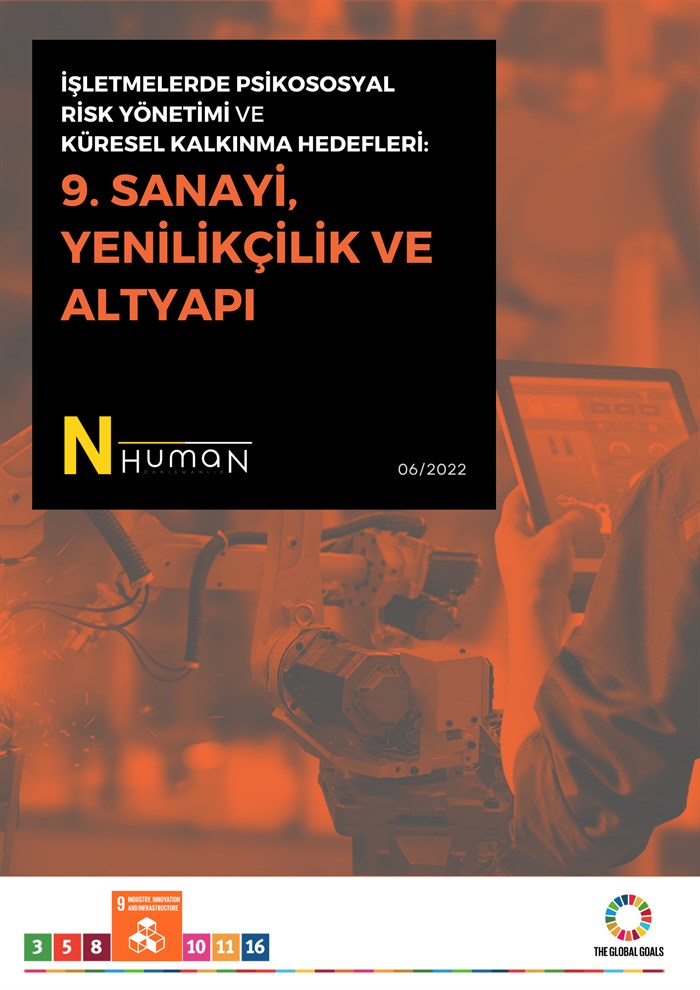
Psychosocial Risk Management and KKH in Business: Industry, Innovation and Infrastructure

Sustainability means that a company can secure its long-term resources, anticipate its future needs, and use resources efficiently and fairly in organizational activities. Social factors that contribute to adopting sustainability approaches include elements of perception, motivation, learning, attitudes, beliefs, self-efficacy and culture.
The changing and newly formed industries during and after the pandemic have also highlighted different working styles, sectors and related different psychosocial factors. The manufacturing industry recovered after the pandemic in 2021, but this recovery did not have the same impact in every country. Nearly one out of every three jobs in the manufacturing industry has been negatively impacted during the pandemic. By performing better and recovering faster, higher tech industries provided a powerful example of how important technological innovation is to achieve the industry, innovation and infrastructure related development goals (SDG 9).
According to the report of the World Health Organization (WHO), many studies have highlighted the negative effects of psychosocial risks on the well-being of workers. Indeed, research shows that in the long run, external stresses and fatigue can cause hypertension, health problems, and low productivity. Research carried out in industries such as machine building and transportation has emphasized that psychosocial factors, motivation and attitudes towards work should be investigated in order to increase the level of participation in the business system. The problems experienced by motorcycle couriers with the increasing demand were brought to the agenda in the relevant report of the ILO and improvement suggestions were discussed.
A comprehensive psychosocial risk management creates opportunities for businesses and the sectors and industries they work in, by strengthening industrial progress, innovation and systemic infrastructures.
If you want more resources on creating a psychologically healthy and safe workplace, To our bulletin where Psychosocial risks are explained in occupational health and safety systems look at.
References
Dragan, F., Luo, C., Ivascu, L., & Ali, M. (1AD, January 1). Assessing the importance of psychosocial factors associated with sustainable organizational development during COVID-19. frontiers Retrieved June 27, 2022, from https://www.frontiersin.org/articles/10.3389/fpsyg.2021.647435/full
United Nations. (n.d.). Goal 9 | Department of Economics and Social Affairs. United Nations. Retrieved June 27, 2022, from https://sdgs.un.org/goals/goal9#targets_and_indicators
Extrinsic psychosocial stressors and workers' productivity. (n.d.). Retrieved June 27, 2022, from https://www.researchgate.net/publication/337802705_Extrinsic_psychosocial_stressors_and_workers'_productivity_impact_of_employee_age_and_industry_experience
Küçük, N. (2022, February 13). Focused on Motorcycle Couriers: Psychosocial Risk Analysis in Delivery Industry Employees. Report: Focused on Motorcycle Couriers: Psychosocial Risk Analysis in Delivery Industry Employees. Retrieved June 27, 2022, from https://www.ilo.org/ankara/areas-of-work/osh/WCMS_837229/lang–tr/index.htm



